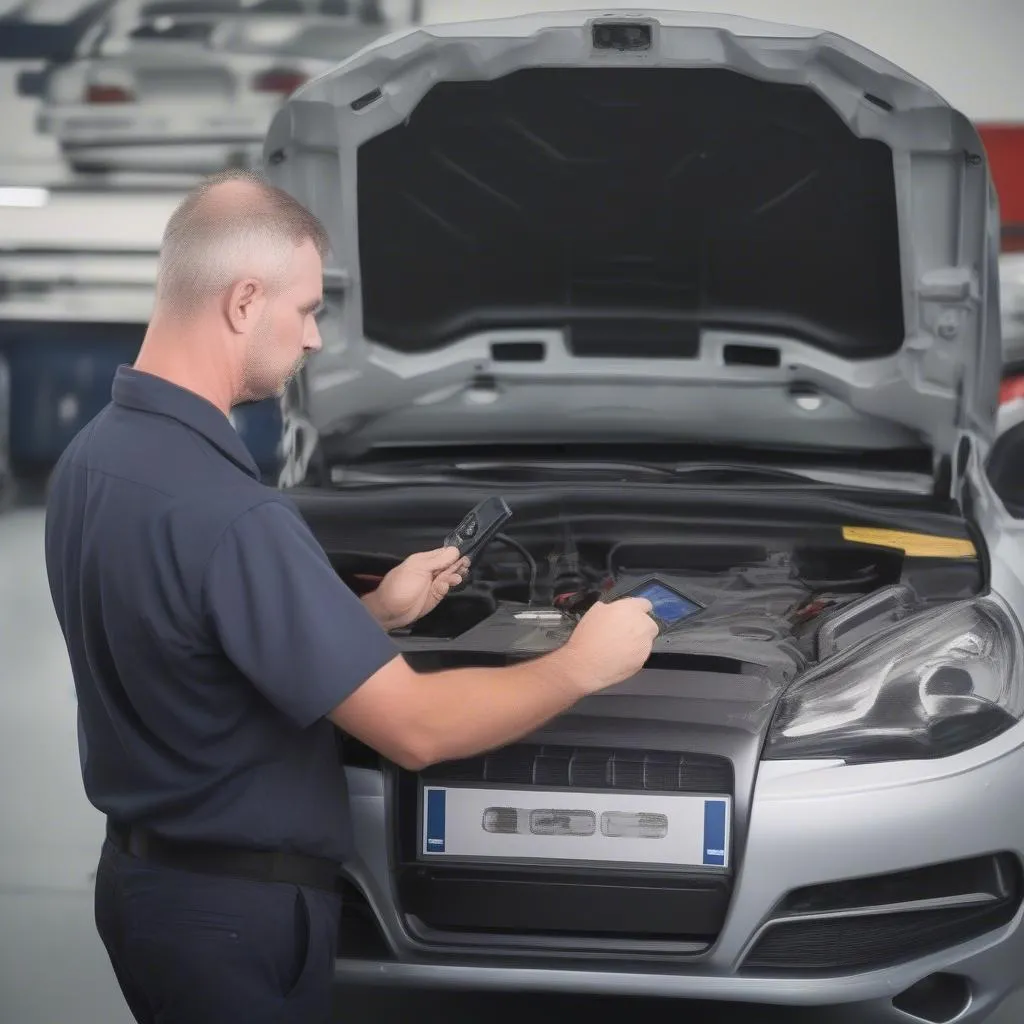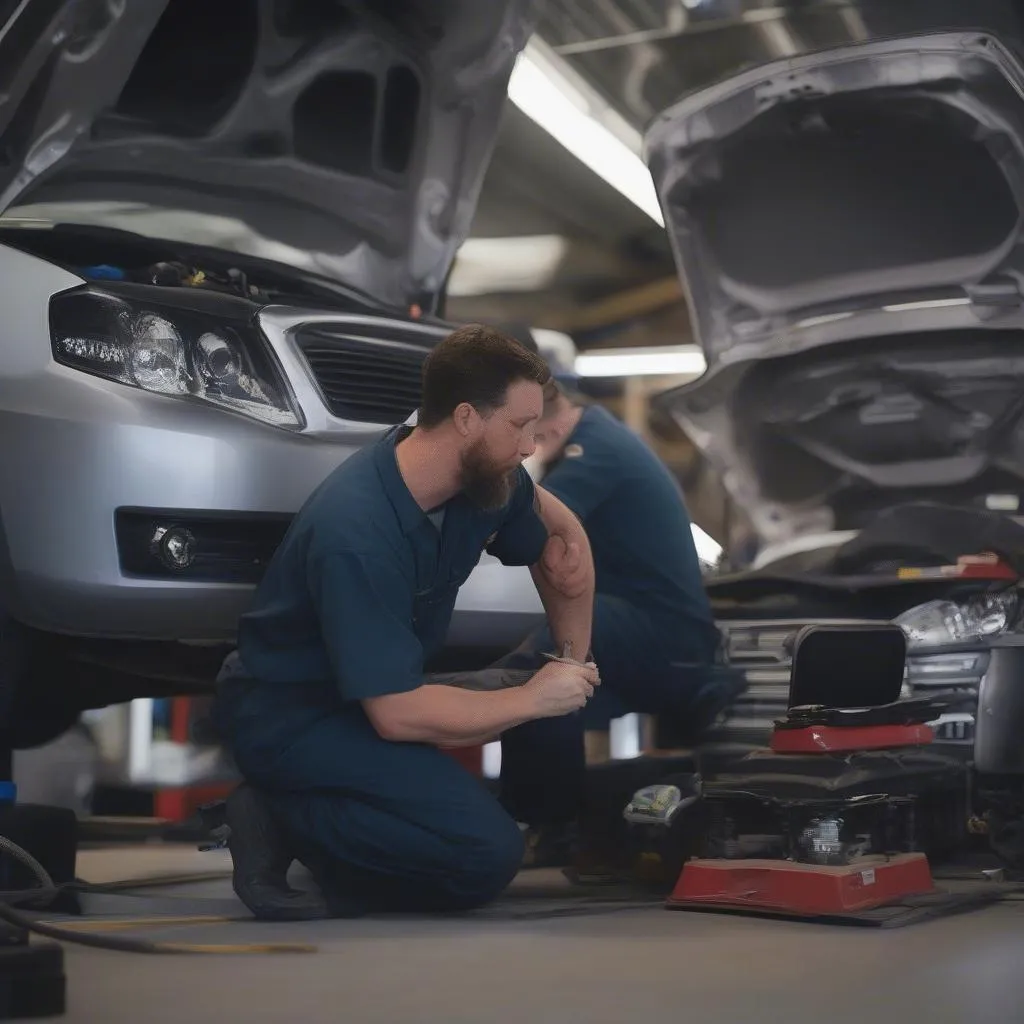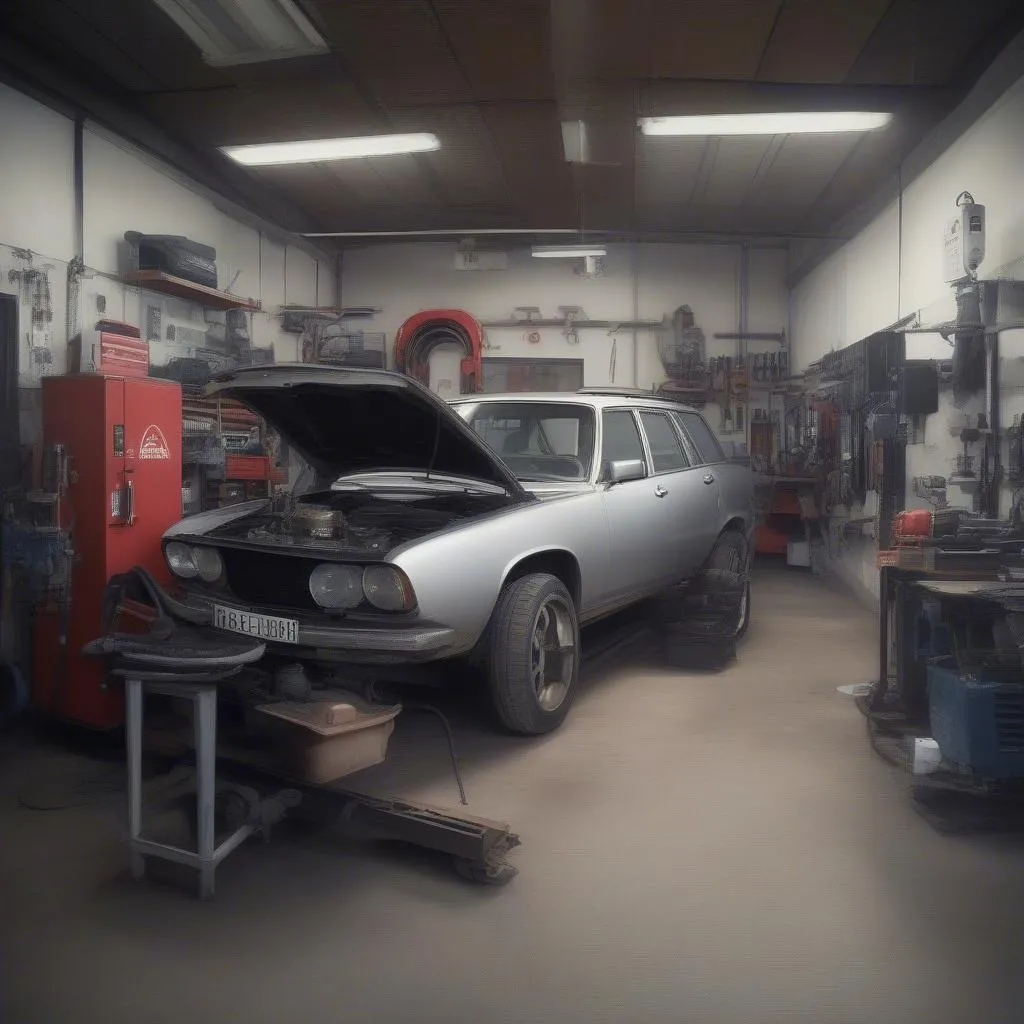Have you ever wondered what exactly constitutes “standard of care” in automotive repair? It’s a question that often pops up when dealing with issues like faulty repairs, unexpected breakdowns, or even insurance claims. In this article, we’ll delve into the definition of “standard of care” and explore its significance in the world of automotive repair, particularly in relation to diagnostics tools for European cars.
What is Standard of Care?
The standard of care in automotive repair refers to the level of skill, knowledge, and diligence that a reasonably prudent and competent automotive technician would exercise in a similar situation. Think of it like the “gold standard” of repair, where a mechanic is expected to possess a certain level of expertise and follow best practices.
Imagine this scenario: You take your beloved Mercedes-Benz to a local garage for a routine oil change. However, after leaving the garage, your car starts experiencing strange electrical problems, and the mechanic blames it on a faulty sensor. You feel that the mechanic hasn’t been thorough enough. This is where the concept of “standard of care” comes into play.
The question arises: Did the mechanic meet the standard of care by properly diagnosing and fixing the issue? To answer this, we need to consider several factors.
Standard of Care in the Context of Automotive Repair:
From a Technician’s Perspective:
- Knowledge and Skill: A competent technician should possess the required training, experience, and certifications to diagnose and repair your vehicle. They should be familiar with the specific nuances of your European car’s electrical system, including its advanced diagnostics software.
- Appropriate Tools and Equipment: The right tools and equipment are essential for accurate diagnosis and repair. This can include specialized diagnostics scanners like those offered by Autel for European cars.
- Industry Standards and Best Practices: Mechanics need to adhere to industry-recognized standards and best practices, such as those established by the Automotive Service Excellence (ASE) or similar organizations.
- Thorough Diagnosis: Before initiating repairs, a mechanic should conduct a thorough inspection and diagnosis to pinpoint the exact cause of the problem.
From a Legal Perspective:
The “standard of care” in automotive repair is legally defined and can be used to determine liability in cases of negligence or faulty repairs. If a mechanic fails to meet the standard of care and their actions result in damages, they can be held accountable.
Understanding “Standard of Care” in the Context of European Cars:
European cars, particularly those manufactured in countries like Germany, Italy, and France, often feature complex electronic systems. They utilize advanced diagnostic protocols and require specialized scanners for proper diagnosis.
For instance, when dealing with a vehicle like a BMW or Audi, a mechanic cannot simply rely on a generic OBD2 scanner. A specialized Dealer Scanner, like those offered by Autel, is often required to access the car’s intricate electronic systems. These scanners are equipped with the necessary software and capabilities to read fault codes, analyze sensor data, and even program new components.
The Role of Diagnostic Tools in Meeting the Standard of Care:
Diagnostic tools play a crucial role in helping mechanics meet the standard of care. Let’s take a look at some of the key advantages:
- Accurate Diagnosis: Diagnostic tools like Dealer Scanners provide detailed information about a vehicle’s health and can pinpoint specific faults, helping mechanics make accurate diagnoses.
- Efficiency: These tools can significantly reduce the time needed to diagnose issues, leading to faster turnaround times for repairs.
- Data Recording and Reporting: Diagnostic tools can record and store diagnostic data, providing a detailed history of repairs and troubleshooting efforts, which can be helpful for insurance claims and future repairs.
- Enhanced Communication: Diagnostic tools can facilitate communication between mechanics and customers by presenting clear, understandable reports and explanations about the issues found.
Real-Life Examples:
- Case Study: A mechanic in San Francisco, California, was recently found liable for damaging a client’s Porsche 911 during a routine repair. The mechanic had failed to use a specialized diagnostics scanner for the vehicle’s complex electrical system, resulting in an incorrect diagnosis and further damage.
- Expert Opinion: According to Dr. James Miller, an automotive expert and author of “Automotive Diagnostics: A Practical Guide,” “Proper diagnostic tools are crucial for any competent mechanic. Failing to use the right tools can lead to inaccurate diagnoses and costly repairs.”
Frequently Asked Questions:
- What if my mechanic doesn’t use a Dealer Scanner? If your mechanic is working on a European car and refuses to use a specialized Dealer Scanner, it might raise concerns about their ability to properly diagnose and repair your vehicle. It’s best to inquire about their experience with European cars and the tools they use.
- How can I find a mechanic who meets the standard of care? Look for ASE-certified mechanics who have experience working on European vehicles. You can also ask for recommendations from friends, family, or online automotive forums.
- What should I do if I believe my mechanic didn’t meet the standard of care? If you’re unhappy with a repair or suspect that your mechanic didn’t meet the standard of care, it’s important to document everything, including dates, conversations, and receipts. You can then contact the mechanic directly or consider seeking legal advice.
Key Takeaways:
- “Standard of care” in automotive repair is a critical concept that defines the level of skill and diligence expected from mechanics.
- Understanding the standard of care can help you make informed decisions when choosing a mechanic for your European car.
- Diagnostic tools like Dealer Scanners are essential for mechanics to meet the standard of care when dealing with complex European vehicles.
Need help with your car’s diagnostics?
If you’re looking for reliable tools and expert advice for your European car, contact us at Diag XCar. We offer a wide range of diagnostics tools and software solutions, including Dealer Scanners for European cars. Our team of experienced automotive technicians is available 24/7 to assist you with any questions or support you need.
Whatsapp: +84767531508
Let’s work together to ensure your European car receives the best possible care!
 Diagnostic Scanner for European Cars
Diagnostic Scanner for European Cars
 ASE Certified Mechanic
ASE Certified Mechanic
 European Car Repair Shop
European Car Repair Shop


